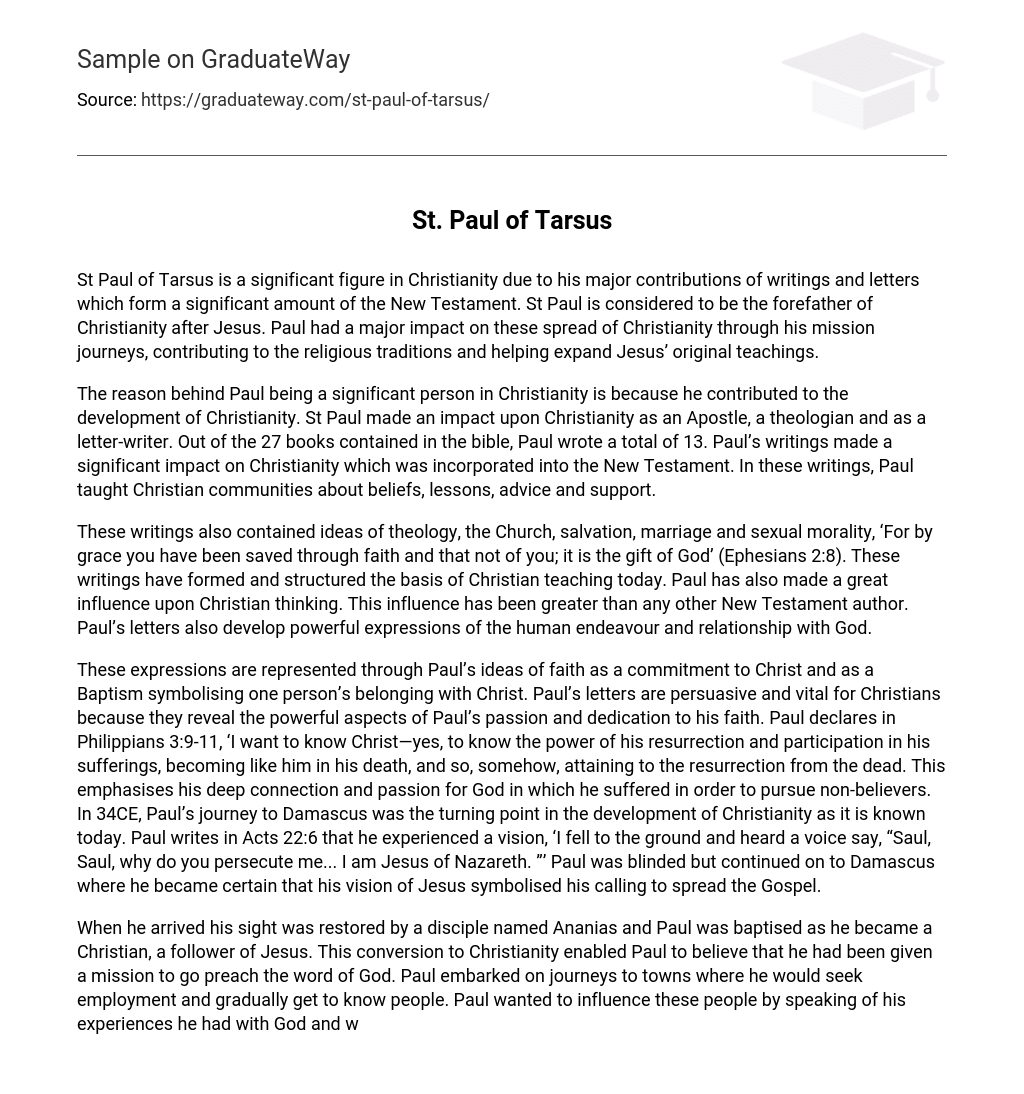St Paul of Tarsus is an important figure in Christianity because of his significant contributions of writings and letters which comprise a substantial portion of the New Testament. Regarded as the progenitor of Christianity following Jesus, Paul greatly influenced the dissemination of the faith through his missionary journeys, enriching religious customs and facilitating the expansion of Jesus’ original teachings.
The significance of Paul in Christianity derives from his contributions to its development. As an Apostle, theologian, and letter-writer, St. Paul greatly influenced the faith. In fact, he authored 13 out of the 27 books in the bible, with his writings exerting a profound impact on Christianity and becoming integrated into the New Testament. Through his letters, Paul imparted teachings, beliefs, lessons, advice, and support to various Christian communities.
The text presents theological discussions about the Church, salvation, marriage, and sexual morality. It cites Ephesians 2:8 which states that “By grace you have been saved through faith; and this is not of yourselves, it is the gift of God.” These writings form the basis for Christian teachings and have greatly influenced Christian thought in comparison to other New Testament writers. Furthermore, Paul’s letters offer deep insights into humanity’s search for God and their relationship with Him.
Paul’s belief in Christ and the symbolism of baptism illustrate his expressions of faith. His persuasive letters to Christians are crucial as they showcase his passion and dedication to his faith. In Philippians 3:9-11, Paul expresses his longing for a profound understanding of Christ, the power of His resurrection, and participation in His sufferings. This reveals Paul’s strong connection and commitment to God, even going so far as to endure suffering for the purpose of spreading his faith to non-believers. The year 34 CE marked a significant turning point in the development of Christianity with Paul’s journey to Damascus. In Acts 22:6, Paul recounts his vision and encounter with Jesus, which called him to proclaim the Gospel. Despite temporary blindness, Paul remained unwavering in his mission and proceeded to Damascus while affirming his calling through seeing Jesus.
Upon arrival, Paul’s vision was restored and he was baptized by Ananias, a disciple. This act represented his conversion to Christianity and his dedication to following Jesus. Paul firmly believed that he had been given the responsibility of spreading God’s message, which gave him purpose in life. As he traveled to different cities, searching for work and building connections, Paul aimed to influence others by sharing his personal experiences with God and the profound understanding they provided regarding Christianity and the teachings of Jesus.
Paul founded churches in various towns and entrusted elders to oversee them while he was engaged in preaching elsewhere. As mentioned in the scripture, ‘Paul and Barnabas appointed elders for them in each church and, with prayer and fasting, committed them to the Lord, in whom they had put their trust’ (Acts 14:23). From 44 to 55 CE, Paul embarked on three significant journeys that played a crucial role in disseminating Christianity across the Mediterranean region. This included present-day nations like Cyprus, Turkey, Greece, and Italy.
Paul, in his mission to spread the word of God, travelled a great distance, covering tens of thousands of miles. His travels are mentioned in Acts 15:41 where he strengthened churches in Syria and Cilicia. The teachings of Paul have profoundly influenced the growth and development of Christianity worldwide, and this impact remains significant in shaping the faith today. The transformative nature of Paul’s teachings continues to shape the values and teachings of Christianity for future generations.





